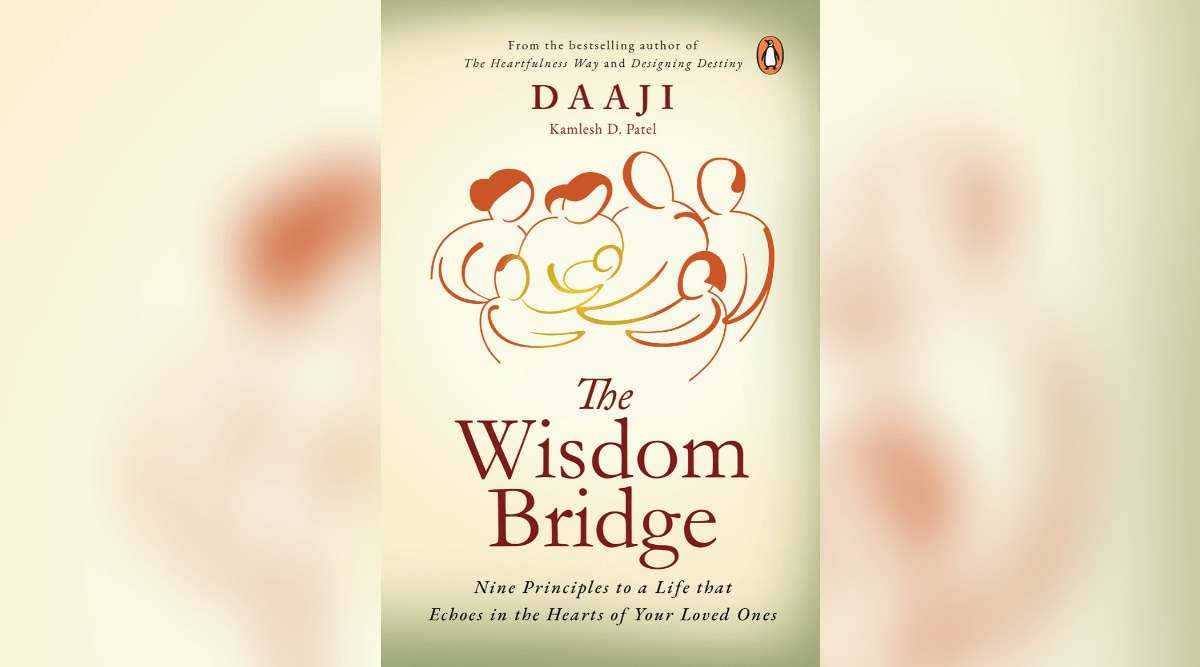How to build muscles of kindness, empathy and humility in your child
Children absorb the thinking patterns of their parents, so the best way to inculcate values in them is by being the example they could follow
 The Wisdom Bridge: Nine Principles to a Life that Echoes in the Hearts of Your Loved Ones; DAAJI (Kamlesh D Patel); Penguin Ananda; 288 pages; Rs 399 (Photo: Amazon.in)
The Wisdom Bridge: Nine Principles to a Life that Echoes in the Hearts of Your Loved Ones; DAAJI (Kamlesh D Patel); Penguin Ananda; 288 pages; Rs 399 (Photo: Amazon.in)By Daaji
When we interact with our children, our biases, our attitudes and our habits, all play a role in shaping them. For example, we often ask our children: ‘How much did you score on the test? Who scored the highest?’, ‘Does your teacher appreciate your work?’ or, the question all children are asked, ‘What do you want to be when you grow up?’
Now consider this. How often do we ask our children questions like: ‘Whom did you help in school today?’, ‘What kind act did you do?’, ‘Did you give others the chance to speak before you?’
I don’t think we discuss such questions as often as we should. We tend to focus more on the muscles of intellect and ambition. The same rigour is not applied to building the muscles of kindness, empathy and humility. Perhaps we assume that these qualities will develop naturally. But it helps to emphasize the importance of character. And there is a reason for this.
Children, deep inside their hearts, understand what their parents truly care about. When parents celebrate good grades, winning awards in school and similar achievements more than their child’s acts of compassion and kindness, then the child gets a subliminal message of what parents truly care about. This is how a child becomes conditioned.
I want to share an incident from the 1990s when I was running my pharmacy business in New York City. My business was bootstrapped, and whatever I earned, I reinvested into the business. In a short span of time, the business grew in terms of size and reputation. Our employees stayed with us for years. The few who left us did so to start their own businesses.
On the days when there was bumper-to-bumper traffic on the Verrazano Bridge which I took to get to work, my customers waited for me. Large chain pharmacies were around the corner, and yet they chose to give us their business. I no longer play an operational role in the business, and it’s been around fifteen years since I last filled a prescription. And to this day, some of the customers still ask about my welfare.
Back then, when I was busy growing the business, I was working on a deal to open a new pharmacy in the city. My business associate had negotiated favourable terms with a prospective seller. Both parties were ready to ink the deal, and I invited the sellers to my home for brunch on the weekend.
That morning, my associate told me that the contract had a clause that stretched the truth from our side. He told me that it wouldn’t be an issue because the clause would be inconsequential in a few weeks after the deal closed. My associate was convinced that there would be no damage to the seller or to us. But as it stood, the clause was a stretch. There were other buyers competing with us for this deal, and I was coached that if a question about the clause came up, I should say, ‘It’s all good.’ Soon the sellers arrived. We were having a great conversation and a feeling of camaraderie was in the air giving one the feeling that the paperwork was a mere formality. As we headed to eat, the seller asked if we were compliant with the contract. From his tone, I knew it was a routine checklist question. And I politely answered no, and also mentioned the clause where we had a problem.
No one was expecting this turn of events and what followed was a stoic brunch. No papers were signed that day.
After the sellers left, my associate, who was upset, asked for an explanation. He was like my younger brother and his anger was understandable. Here’s what happened that afternoon.
As we were having our conversation, I saw my son playing in the living room. He was a young boy, six years old at that time. For a moment our eyes met, he smiled at me and continued playing. But my heart became heavy. I asked myself, ‘Why are you doing this?’, ‘What are you teaching him?’, ‘Is this what I want to break bread over?’ I was already hesitant, and when I saw my boy’s face, it gave me the nudge needed to act on my heart’s guidance.
After a few months, I met the sellers at a social event. After some small talk, the seller told me that they made a deal with someone else. He also confided in me that the new buyer had stretched the truth and did not disclose it at the time of the deal. Even though we didn’t have a deal, our mutual respect increased.
I shared this story to point out that even if parents don’t tell their children what is truly important to them, the children pick it up. Your moral dilemmas today can become theirs in the future. Children subliminally absorb our thinking patterns even when we are not in the same room with them. Children are like sponges, soaking up everything. And children want to achieve whatever their parents value. Parents and close family members sometimes play the role of potters, shaping the children’s character. At other times, they are the gardeners, grooming and nourishing the child. At all times they are the guardians of the child’s moral compass.
It’s up to the parents to truly value compassion, kindness, love, courage, empathy and other qualities. Only then do we pass on the right message to our children.
(Excerpted with permission from Penguin Random House India)
For all the latest Parenting News, download Indian Express App.
- 01
- 02
- 03
- 04
- 05































